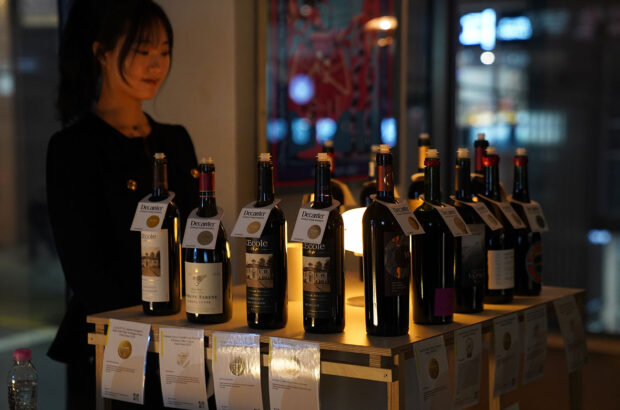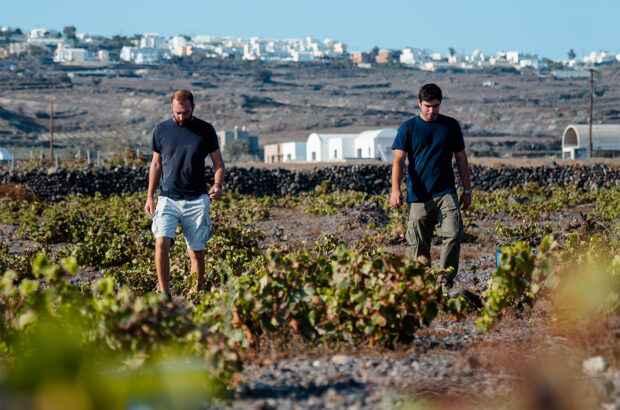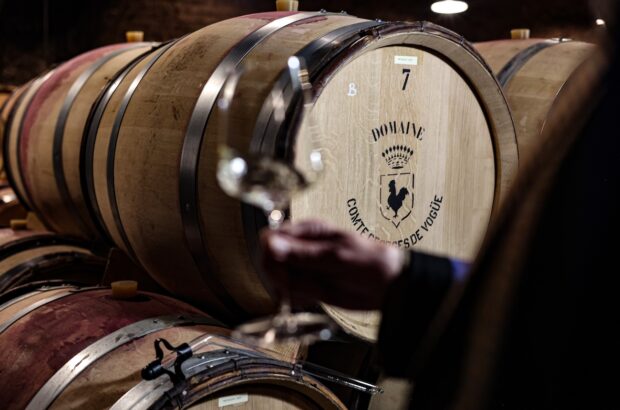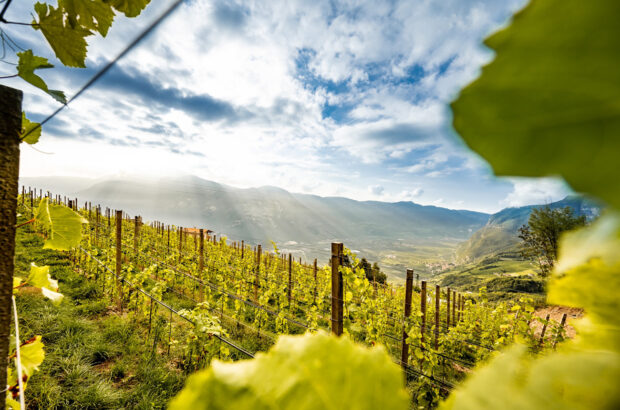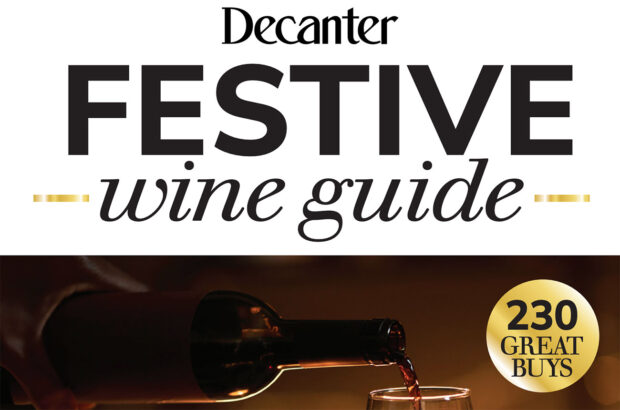‘Everyone deserves a perfect partner, as a nice bottle of wine deserves the right glass,’ says Marcello Neri, head sommelier of Kensington’s Launceston Place restaurant. However, unlike spectacles, where one pair ordinarily suffices to bring a multitude of subjects into sharper view, humanity has managed to further complicate the subject of wine by designing a dizzying array of glasses to enhance it, whether they flatter specific varietals, styles or bottles at a particular stage of maturity.
In this guide, you will find such specialised tools as well as, for those on a budget, with limited storage, or incurable indecision, excellent one size fits all options. However, common to every glass included is the tapering, tulip shaped nature of the generously proportioned bowl which, true wine lovers unite on, helps build and nurture aromas and, when swirled, keeps the liquid within from spilling out.
Such a form also applies too to glasses for sparkling wines. As Nick Baker, founder of merchant, The Finest Bubble, advises, ‘remember, the Champagne flute can be beautiful if you want to watch bubbles, but it is hopeless if you want to enjoy the aromatics hence we recommend people throw them away!’ Stephen Duckett, co-founder of England’s Hundred Hills sparkling wine estate agrees. ‘Designed to mask poor quality Champagnes, flutes were never expected to become ubiquitous, but cheap Champagnes and Prosecco accelerated the need for them in modern times.’
And best, too, to avoid the saucer-shaped coupes. These, say Charles Goemaere, executive director of Comité Champagne, were popular in the 1920s for their stable base when carried on trays. ‘However, their shape rapidly dissipates Champagne bubbles.’
Best luxury all-rounder for sparkling wines:
Lehmann Grand Champagne Mouth-Blown Ultralight ((£94 for two, The Finest Bubble)

Both the shapely Lehmann Grand Champagne and subsequent Synergie are informed by self-described ‘oenoconsultant’, Philippe Jamesse, a sommelier in Champagne for 30 years. Of the Grand Champagne, while its machine-made counterpart is ‘okay’ says Nick Baker, the mouth-blown version, which takes a minimum of six master glassmakers to manufacture one item, is ‘exquisite’. These ‘offer a lightness and delicacy without being too fragile.’ The Grand Champagne’s chief attribute: to bring forward the reductive elements in a sparkling wine and help suppress oxidation.
Best for prestige sparkling rosé and saignée:
Lehmann Jamesse Synergie 60cl Mouth-Blown Ultralight (£88 for two, The Finest Bubble)

‘There is rarely much to be gained going any larger, though prestige cuvée rose will nearly always benefit from a larger bowl,’ notes Baker, as seen in these more Burgundy-shaped glasses which coax forth red fruit, including those from the rarer, redder saignée style of fizz.
Best affordable all-rounder for sparkling wines:
Riedel Veritas (£43.95 for two, The Riedel Shop)

According to chairman of the Champagne and Sparkling Wine World Championships, Tom Stevenson, the machine-made Riedel Veritas is a vessel which adeptly assists in ‘swirling, nosing and assessing’ hence its use in the competition. It also happens to be the ‘go-to fizz glass’ for Riedel’s MD, Stephen McGraw when he is enjoying English sparkling wines at home.
Best for younger whites:
NUDE Stem Zero Master (£49 apiece, Nunido)

At once wafer-thin and lightweight, this Turkish designed, handmade glass brings the drinker in closer contact with the liquid. It is debatably less showy than a Zalto Universal and remarkably tougher than its looks suggest thanks to the ‘Ion Shielding Technology’ deployed in which, according to the manufacturer, ‘larger ions replace smaller ions in the glass surface, suppressing the micro-fissures that cause glass to crack.’
Best for more developed whites:
NUDE Stem Zero Full Bodied White Wine (£48 apiece, Bonbinate)

With a broad diameter of 125mm, this large but lightweight, again, handmade glass encourages the wine to interact with the air while notes of oak and the backbone of acidity, are simultaneously nursed.
Best all-rounder:
Jancis Robinson x Richard Brendon (£90 for two, The Finest Bubble)

A graduate of Kingston School of Art, Richard Brendon often looks to the past, as per his ‘1650’ collection of just 24 seal impressed decanters crafted by classical British glassblower, Simon Moore. In contrast, his collaboration with Master of Wine, Jancis Robinson OBE is much more contemporary. Conveniently intended to degust every style of wine imaginable, their wine glass holds one sixth of a bottle at its widest point, tapering to an undistracting, thin rim. For Bastille Day, the English-designed collection, which is handmade in Slovenia, will be filled with sparkling wine from Stephen Duckett’s aforementioned English estate, Hundred Hills of Henley, as the toast to strengthen an Anglo-French entente at Raymond Blanc OBE’s Le Manoir aux Quat’Saisons.
Best for younger reds:
NUDE Ghost Zero Belly (€98 apiece, NUDE)

Our third entry from NUDE is the most visually striking so far, evoking in shape the Mr. Greedy protagonist immortalised by children’s author, Roger Hargreaves. The voluptuous, handmade Ghost Zero Belly captures the wine in its ‘belly’ and then vigorously funnels the ensuing aromas along the chimney. Tactile, it is also a good glass to ‘hug’ to bring cool wines to a warmer temperature, if required.
Best for more developed reds:
L’Esthete (£237 per six, Wineware)

Antoine Schvartz founded the Sydonios company ‘from a piece of paper’ five years ago. ‘We started with one year of scientific research involving more than 100 wine professionals, reading all the papers written on the impact glass has on wine tasting, meeting the best winemakers from each French appellation.’ The resulting handmade L’Esthète glass, which sleekly tames tannins in young wine and coaxes nuances from older renditions without exposing the wine to a shocking amount of air, is now used by ‘around 80% of the Grand Cru Classes in Bordeaux,’ says Schvartz. While these are currently mouth-blown in Bohemia, Schvartz is due to open a factory in France later this year. Resourcefully, he intends to release ‘the Unperfect glass’ in September, ‘which has a bubble or more at a discount of around 35%.’
Best varietal specific glass:
Riedel Winewings Pinot Noir/Nebbiolo (£29 apiece, Riedel)

Although arguably the least visually appealing entry in this guide given its vast, wobbly helmet-like look, our second entry from Riedel comes from the machine-made Winewings range. This is so-called after the way the broad base of its bowl extends like an aircraft’s wings. The Pinot Noir/Nebbiolo glass however positively transforms the sometimes-shy Pinot Noir or Nebbiolo, especially when the latter is youthfully tannic.
Best for sheer luxury:
Lalique 100 Points Burgundy (£140 apiece, Lalique)

‘Once a customer has used a Lalique wine glass, they always come back and buy into the wider collection,’ says Frederick Fischer, Managing Director of Lalique UK. The 100 points collection was designed in collaboration with the wine personality, James Suckling, and takes pride of place at the freshly Michelin-starred Lalique restaurant at Scotland’s Glenturret distillery. Lalique creative director, Marc Larminaux says it can take as many as 20 workers five days to perfect each glass. While the 100 points collection runs to 15 designs, characterised by a tactile, frosted, pillar-like stem, I particularly rate the Burgundy glass which lifts Syrah as well its raison d’être, Pinot Noir.
Best for value:
Villeroy & Boch Manufacture Rock (41.52 for four, Dawsons Department Store)

At around £10 per glass if you shop carefully, this machine-made range is designed to dovetail with a corresponding matt finish porcelain range which evokes slate in its look. The white wine version is a good all-rounder for still wines, and has an interesting, gently diffusing black stem leading to an ample bowl.
Best for city dwellers:
Waterford Elegance Stemless (£65 for two, Waterford)

Ireland based Waterford is today owned by Finland’s oldest company, Fiskars (1649), which is famous for its sturdy, practical, orange handled scissors. Also rational in design are these hand-made stemless glasses made to a new crystal formula, which feel generations away from Waterford’s much imitated, deeply etched Lismore design. At only 11 centimetres high, these stemless glasses are easy to store in the tightest of cupboards, while the dimple in the base provides a grip point and aesthetically evokes the punt of a wine bottle. Despite their apparent informality, the Slovenian crystal brings a sense of occasion to a daily pour.
Best for blind tasting:
Spiegelau Authentis Blind Tasting (£71.40 for four, RoyalDesign)

Now owned by Riedel, Germany’s Spiegelau brand dates to at least 1521. Sprayed black to dramatic effect, these shiny, machine-made glasses are intended to wholly strip a wine of its visual cues. The results can be humbling if it transpires a so-called professional cannot tell their Riesling from a rosé.
Best for sweet wines:
Rochini Oekks Digestif (€216 per six, Rochini)

This precise, tall, hand-made glass, which works for sweeter styles of wine, including the full canon of sherry, is part of a range of ‘feather-light hand-blown eye-catchers’ according to Austrian designer, Hannes Tiefenthaler. All glasses in the core range adhere to a harmonious height. ‘Every glass has the same height leading to a well-balanced feeling on the table,’ adds Tiefenthaler. Quirkily and effectively, at Farringdon’s classy Persian restaurant, The Drunken Butler, owner, Yuma Hashemi delights in serving his signature antique Negronis, free from ice, in these glasses.
Best for a picnic:
YETI Rambler wine tumbler (£25 apiece, Yeti)

Adhering to their motto, ‘built for the wild’, the Texas based outdoor living specialist, YETI, has created a strong, puncture and rust resistant, machine-made stainless-steel vessel for wine with an optional lid. And being double wall insulated, no condensation will form, even if you like your juice as cool as these revolutionary vials look.



